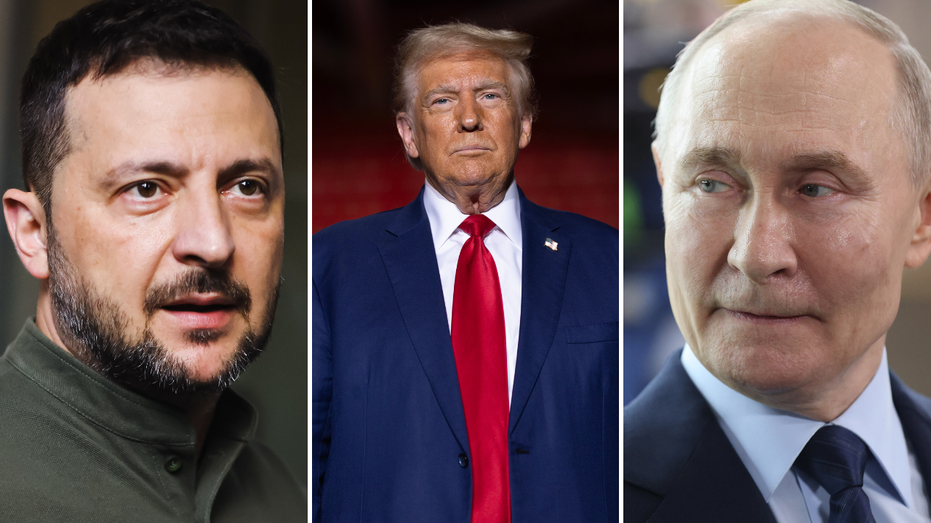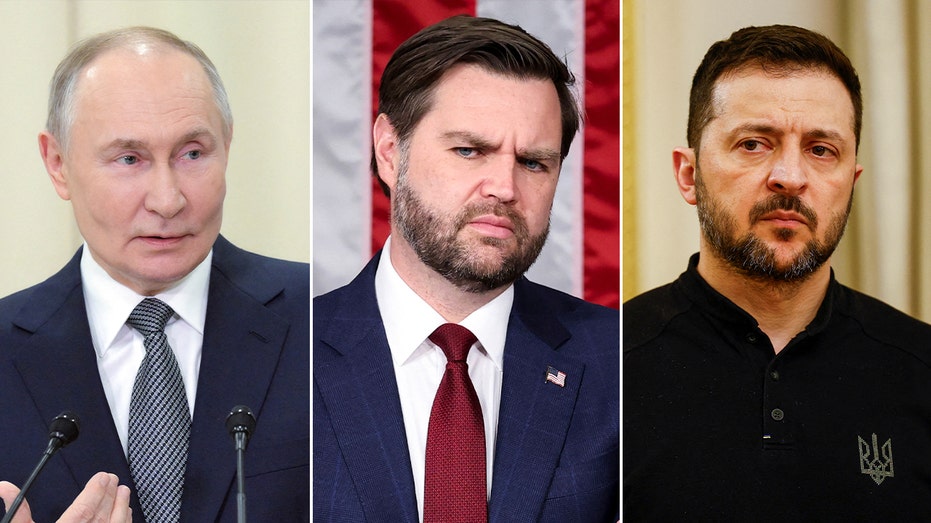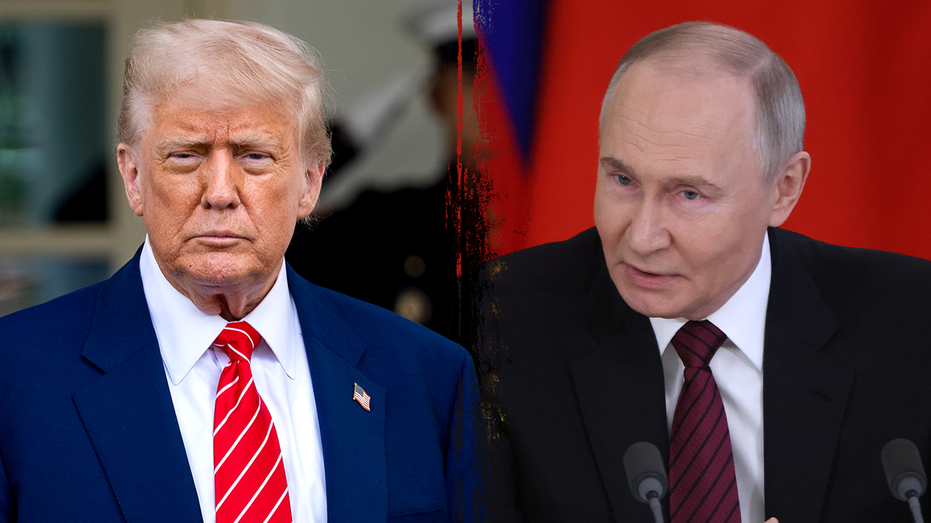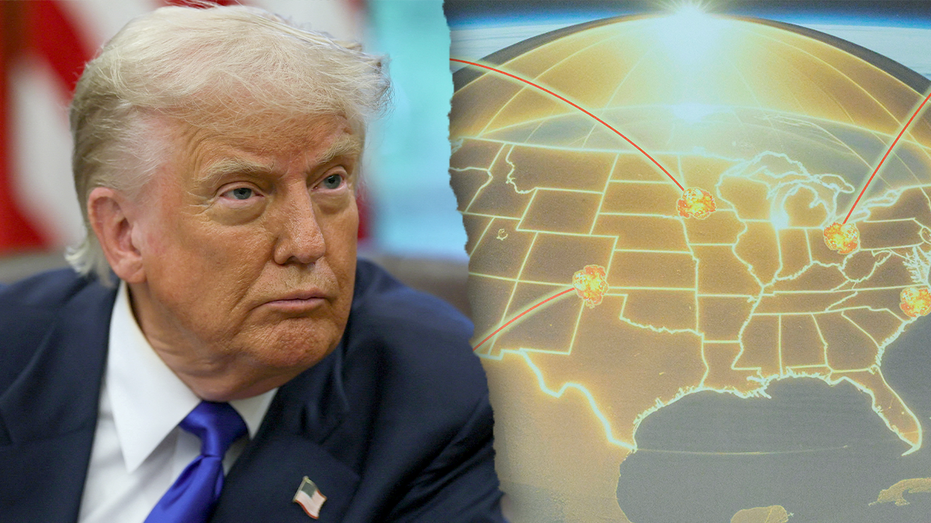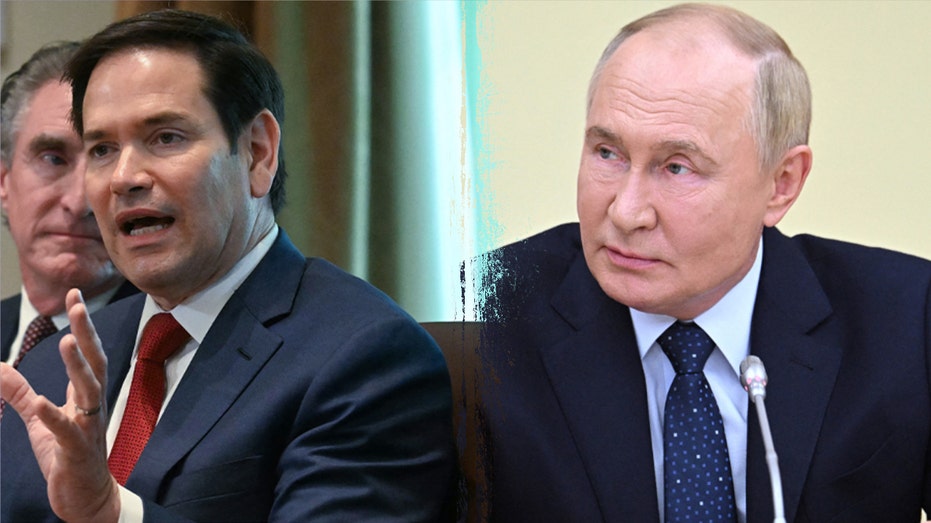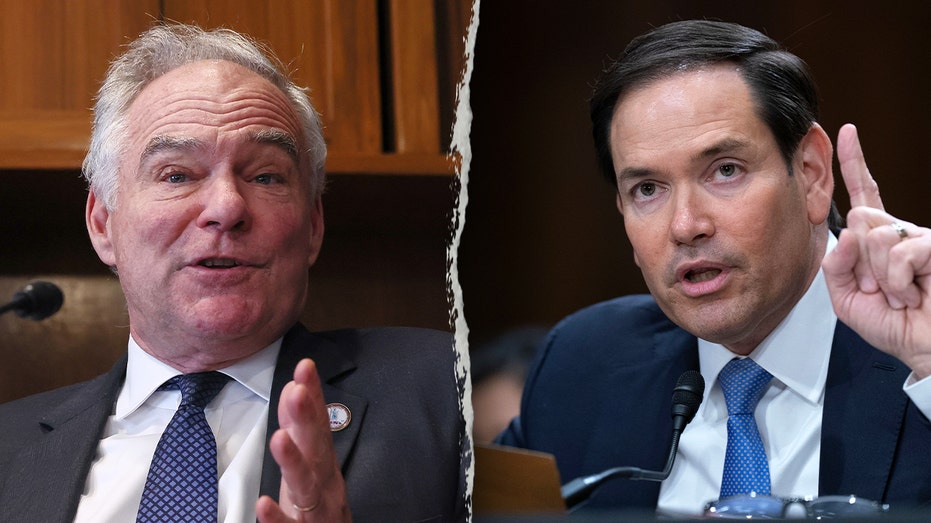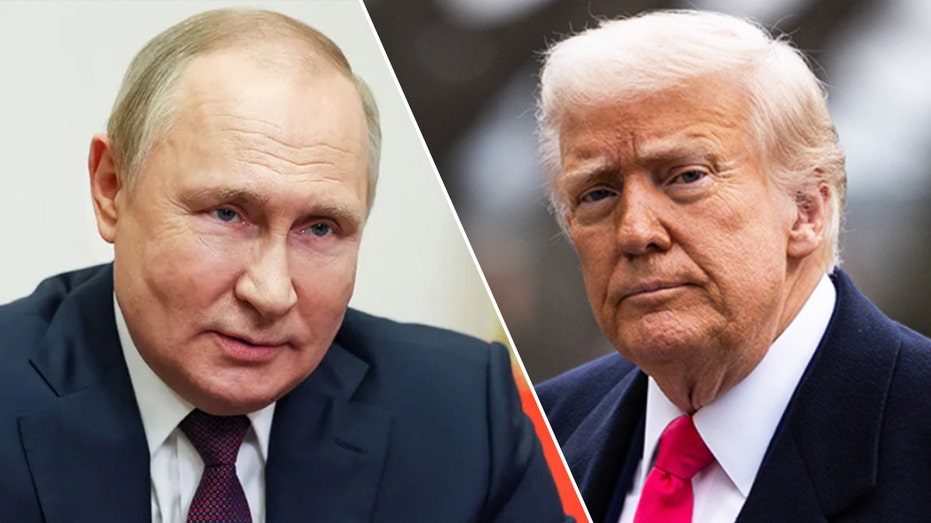Trump talks with Putin, spars with South African leader, threatens EU tariff hike in 18th week in office
President Donald Trump spoke with Russian President Vladimir Putin about ending the war in Ukraine, hosted the president of South Africa at the White House and threatened more stringent tariffs against the European Union this week.
During South African President Cyril Ramaphosa’s Oval Office visit on Wednesday, Trump got into a testy exchange with the South African leader about the treatment of White farmers there. Specifically, Trump aired a video that showed white crosses that Trump said were approximately 1,000 burial sites of White Afrikaner South African farmers.
Trump has repeatedly asserted these farmers are being killed and pushed off of their land.
TRUMP TO MEET LEADER OF ‘OUT OF CONTROL' SOUTH AFRICA AT WHITE HOUSE
Trump told Ramaphosa at the White House that the burial sites by the side of the road are visited by those who want to "pay respects to their family member who was killed."
"Now this is very bad. These are burial sites right here. Burial sites — over a thousand — of White farmers. And those cars are lined up to pay love on a Sunday morning. Each one of those white things you see is a cross. And there is approximately a thousand of them," Trump said. "They're all White farmers. The family of White farmers. And those cars aren't driving, they are stopped there to pay respects to their family member who was killed. And it's a terrible sight. I've never seen anything like it. On both sides of the road, you have crosses. Those people are all killed."
"Have they told you where that is, Mr. President?" Ramaphosa said. "I'd like to know where that is. Because this I've never seen."
"I mean, it’s in South Africa, that’s where," Trump said.
"We need to find out," Ramaphosa said.
The White House defended showing the clip and said that the video was "substantiated," following reports that emerged after the encounter that said the crosses were from a memorial demonstration following the murder of a White farming couple, not actual burial sites.
Here’s what also happened this week:
Trump and Putin spoke over the phone on Monday to advance peace negotiations ending the war between Moscow and Kyiv. The call occurred just days after Russia and Ukraine met in Turkey to conduct their first peace talks since 2022.
After the call, Trump said both countries would move toward a ceasefire and push discussions to end the war. But, Trump indicated that the U.S. would let Moscow and Kyiv take the lead on negotiations after his call with Putin.
"The conditions for that will be negotiated between the two parties, as it can only be, because they know the details of a negotiation that nobody else would be aware of," Trump said in a Monday post on Truth Social.
TRUMP SAYS HE COULD ‘WALK AWAY’ FROM RUSSIA-UKRAINE TALKS, CITES ‘TREMENDOUS HATRED’ ON BOTH SIDES
Additionally, Trump has continued to distance the U.S. from the conflict this week, describing the conflict as a "European situation."
"Big egos involved, but I think something's going to happen," Trump told reporters on Monday. "And if it doesn't, I'll just back away and they'll have to keep going. This was a European situation. It should have remained a European situation."
Trump expressed similar sentiments on Wednesday when Ramaphosa visited and stated: "It's not our people, it's not our soldiers… it's Ukraine and it's Russia."
The White House condemned the fatal attack against two Israeli Embassy employees in Washington, D.C., on Wednesday, labeling that incident an act of antisemitism.
A gunman opened fire and killed Yaron Lischinsky and Sarah Lynn Milgrim as they were leaving an event at the Capital Jewish Museum. The two were planning to get engaged next week in Jerusalem, White House press secretary Karoline Leavitt said at a press briefing.
Authorities arrested a pro-Palestinian man identified as 31-year-old Elias Rodriguez of Chicago in connection with the attack, according to officials.
In response, Trump and other leaders of his administration said attacks like these must stop and said that those responsible will face justice.
"These horrible D.C. killings, based obviously on antisemitism, must end, NOW!" Trump wrote in a Truth Social post. "Hatred and Radicalism have no place in the USA. Condolences to the families of the victims. So sad that such things as this can happen! God Bless You ALL!"
Leavitt later told reporters she’d spoken with Attorney General Pam Bondi and that those who conducted the attack would face prosecution.
"The evil of antisemitism must be eradicated from our society," Leavitt told reporters on Thursday. "I spoke to the attorney general this morning. The Department of Justice will be prosecuting the perpetrator responsible for this to the fullest extent of the law. Hatred has no place in the United States of America under President Donald Trump."
Trump threatened to slap a 50% tariff on imports from the European Union on Friday amid ongoing trade negotiations and after locking down a trade deal with the U.K.
The deal with the U.K. is the first historic trade negotiation signed following Liberation Day, when Trump announced widespread tariffs for multiple countries on April 2 at a range of rates.
The administration later adjusted its initial proposal and announced on April 9 it would immediately impose a 145% tariff on Chinese goods, while reducing reciprocal tariffs on other countries and the EU to a baseline of 10% for 90 days.
TRUMP SIGNALS CHINA ‘VERY MUCH’ INTERESTED IN SECURING TRADE DEAL AHEAD OF SWITZERLAND NEGOTIATIONS
"Their powerful Trade Barriers, Vat Taxes, ridiculous Corporate Penalties, Non-Monetary Trade Barriers, Monetary Manipulations, unfair and unjustified lawsuits against Americans Companies, and more, have led to a Trade Deficit with the U.S. of more than $250,000,000 a year, a number which is totally unacceptable," Trump wrote in a Truth Social post on Friday about the EU.
"Therefore, I am recommending a straight 50% Tariff on the European Union, starting on June 1, 2025," he said.
CLICK HERE TO GET THE FOX NEWS APP
Treasury Secretary Scott Bessent later said in an interview with Fox News he hoped the warning would "light a fire under the EU" and signaled Trump’s threats stemmed from frustration negotiating with European countries on trade deals.
"EU proposals have not been of the same quality that we’ve seen from our other important trading partners," Bessent said.
Fox News Digital's Greg Norman contributed to this report.

